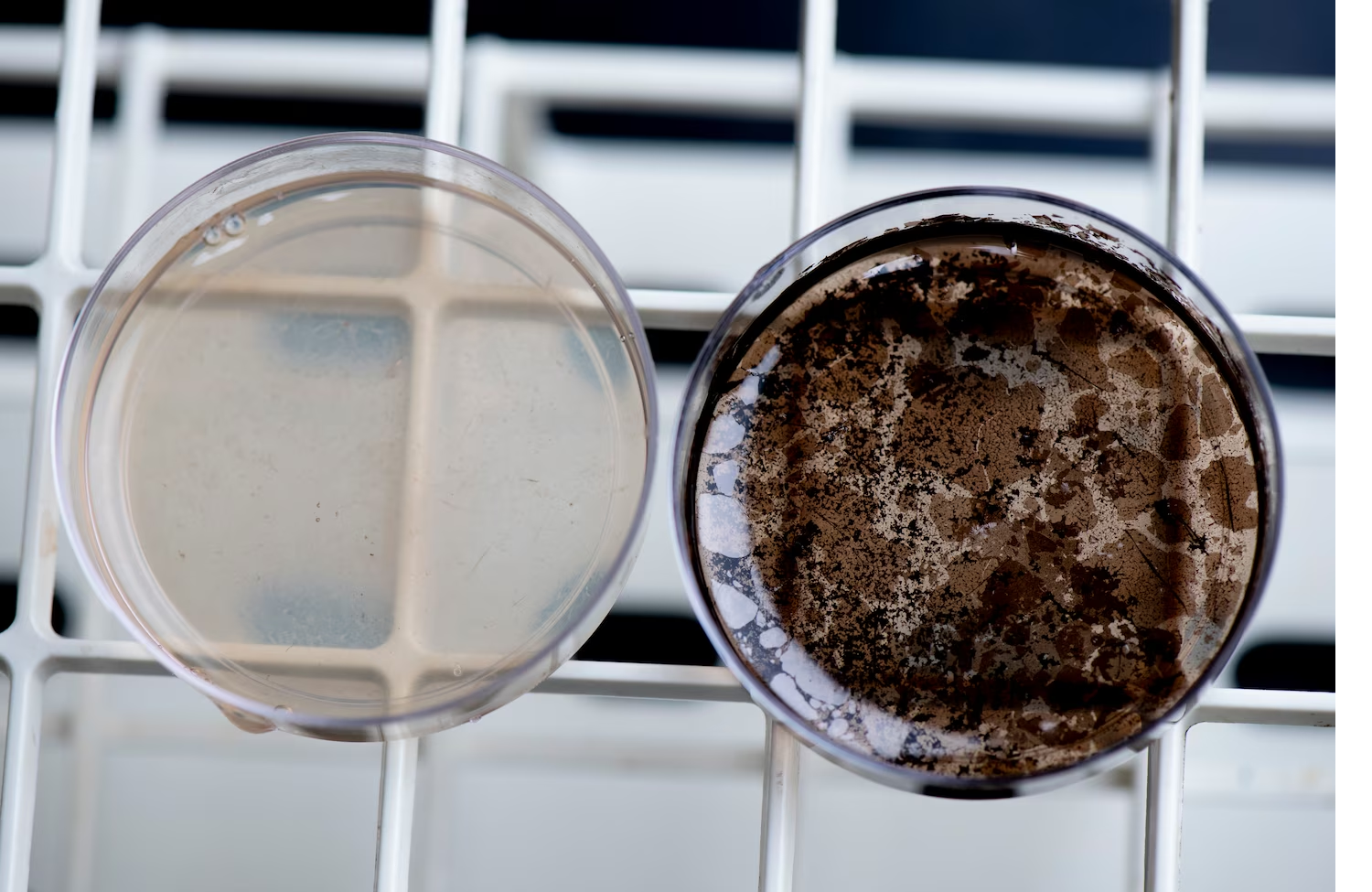
(Left) Wild-type Escherichia coli a non-melanin producing strain and (right) bioengineered E. coli mutant with the Tyr1 gene to produce melanin in liquid media. A melanin biofilm is observable in the mutant strain that is part of a U.S. Naval Research Laboratory (NRL) project called Microbes for Multiple Uses in Space Project (MELSP) in Washington, D.C., October 10, 2023. NRL’s MELSP will use the International Space Station (ISS) to search for the production of melanin variants and other useful biomaterials that have applications both on Earth and in space. Image Credit: Jonathan Steffen
Melanin is defined as a class of biopolymers that perform a variety of biological tasks, such as pigmenting the skin, hair, and iris of the eyes and assisting in shielding human cells from UV radiation damage.
The structure and properties of melanin are highly dependent on synthesis and polymerization conditions, therefore the production of melanin in microgravity may lead to new melanin variants with novel physico-chemical properties. We will investigate how microgravity and cosmic radiation influences microbial melanin production and study the role that melanin plays in adaptation to the ISS environment.
Tiffany Hennessa, Ph.D., Research Biologist, Center for Biomolecular Science and Engineering, US Naval Research Laboratory
Zheng Wang, Ph.D., principal investigator of MELSP and research biologist at CBMSE, added, “Despite the significant research that has previously been conducted to understand the structure and properties of melanin, there remain considerable gaps in our knowledge that have hindered our ability to harness melanin for its full potential. Assembly and polymerization of melanin in microgravity may lead to ‘more perfect’ structures with decreased heterogeneity.”
Scientists at NRL will examine bacterial and fungal strains produced on the International Space Station (ISS) that do not possess melanin as a protective factor to find new defensive mechanisms.
Three microbial species—the modified strain of Escherichia coli and two melanized fungal strains, Aspergillus niger, and Exophiala lecanii-corni, as well as their mutants lacking in melanin—will be cultured on board the International Space Station (ISS) as part of this experiment.
Furthermore, to investigate the impact of space radiation on fungal DNA and melanin manufacturing, two A. niger mutants with impaired DNA repair capabilities will be cultivated.
The MELSP research can result in financial benefits by offering priceless insight into the identification and advancement of innovative biomaterials, which could benefit numerous markets.
It is expected that MELSP will yield information that will be extremely helpful to the development of this discipline, including important insights into the production of melanin and the structure-driven activity that results from it, which can be used for a variety of applications on Earth.
The initial steps required to set up biomaterial manufacturing hosts for use in extended space expeditions will be provided by these endeavors. The MELSP study will add new insights into how spaceflight affects biological systems and add to the expanding body of knowledge about melanin's role in these processes.